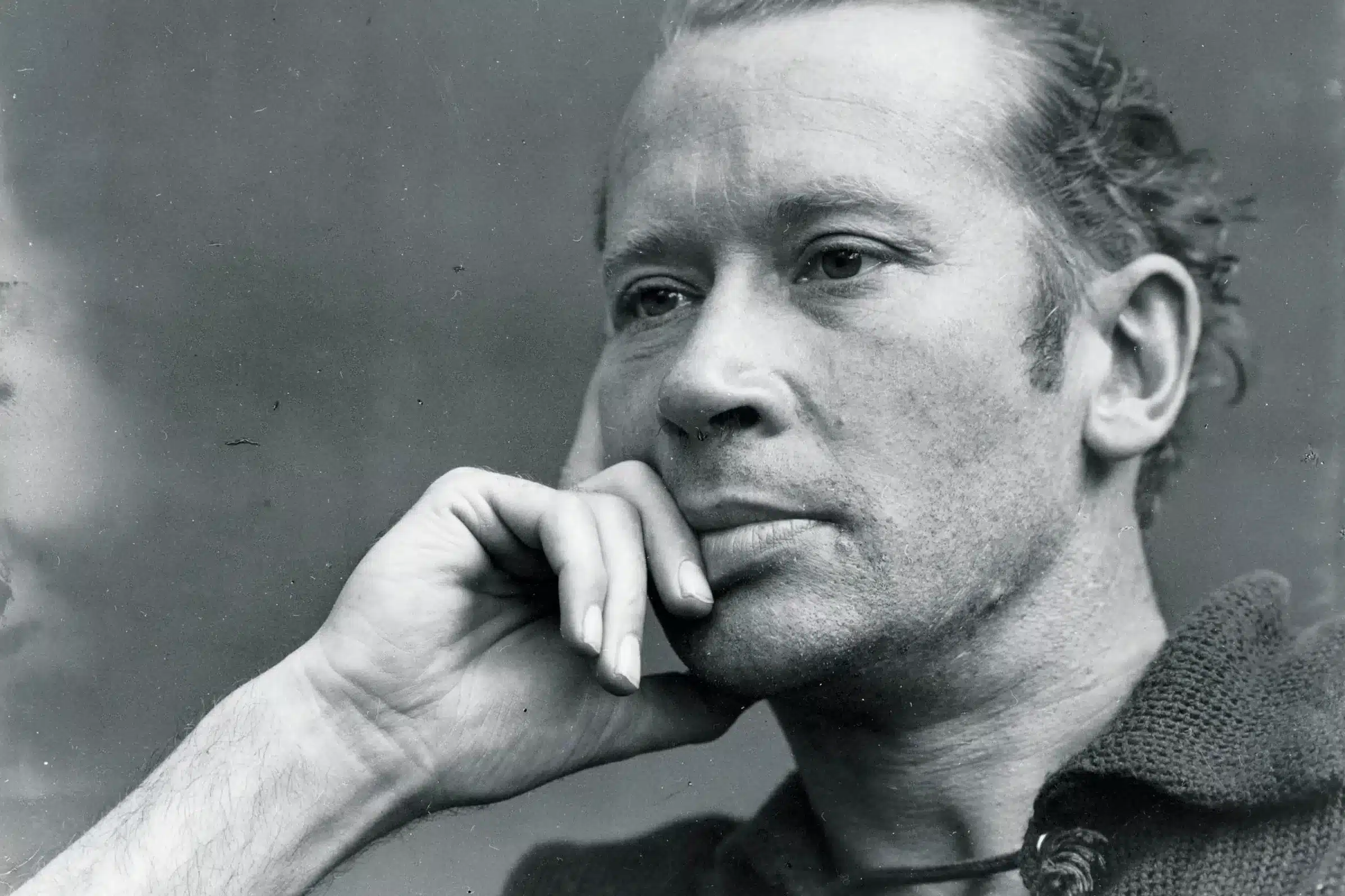
Your Life is Perfect
by Missy Andrews
What would you say if I told you that your life was perfect? You’d probably say something like: “You don’t know my life.” I know, I know. That’s what I’d probably say, too. But really, think about it. Where does this knee-jerk response come from? What ideas undergird our common denial? Let’s do a thought experiment and examine our presuppositions together. I’ll go first:
When I say that my life is not perfect, that it’s not anywhere near what it ought to be, I judge my own circumstances. And what forms the basis of my judgment? Well, I’d like to say God’s Word because we all know that that’s the right answer, but in truth, it’s many things. It’s my (mostly unobserved) assumptions about what constitutes “the good.” And where did I gather these assumptions? From my desires, my neighbors, my community, my reading, the culture, even the church. I have spent a lifetime of grafting together the best that I have seen, thought, or imagined into a composite sketch of what’s good, and my picture is pretty lovely. The good life, as I imagine it, looks shiny and desirable – enviable even. (Is it too much to say that this envy just may be the root of the judgment I render on my life?)
For me, the good life looks like grown children who are carbon copies of me and my husband, with families that are miniatures of the one we raised. They share our assumptions of “the good.” They do everything the way I taught them and they love to have us around. They apply to us for help and counsel and build their lives around us. They affirm us as good. Glorious, right?
Maybe your idea of the good life looks like children that wash behind their ears, are obedient, respectful, well-mannered, bright, industrious, and virtuous. They do their chores without being asked. They do their lessons without being hounded. They make straight As. They excel in music and art – or maybe sports or debate. They help their grandparents and extend themselves to the neighbor kid. They serve in the local church and volunteer their time at Christian non-profits. They are good, and they make you look good, too! Maybe your good life includes a husband that comes home from work fresh and eager to participate in family life. He swoops in to pick up the day’s slack, helping junior with his lessons and bouncing the baby on his knee while you sit down for a rest. He talks with you, asks you about your day, and insists on making dinner for you and the kids, making a game out of clean-up so that you can feed the baby and get her ready for bed.
Or maybe your idea of the good has more to do with your own behavior. It means that you always start the homeschool day on time, fresh from your shower and personal quiet time, your kitchen already sparkling clean even though you made a full, home cooked breakfast for your husband and kids before dawn. You’ve got the day planned, the lessons lined out, and your house runs like a well-oiled machine. There’s never jam on your counter or Cheerios on your rug. The laundry is always caught up, folded and pressed and stored. Nothing is ever late, lost, or less than your expectations. Though you appreciate your husband’s willingness to help, you don’t really need him. You’ve got this.
Notice what’s missing from these pictures? Well, as I said before, many things. First, there’s no sin. In fact, there are no human wills to provoke sin, except yours of course, and even your will has been airbrushed for the photo. These pictures assume that everyone shares the same set of goals – that everyone’s will matches yours.
Even leaving willfulness and sin aside, our pictures omit things like entropy, brokenness, time, and general earthiness. Life is dirty. We’re formed from dust, and dust is everywhere. Our kids make dust. Our husbands track dust in. And we don’t always choose to sweep it up; so, it mars the shine on our picture-perfect ideals. Moreover, these pictures omit suffering, and suffering is everywhere.
And lest I fail to state the obvious, these pictures are entirely egocentric. They fail to consider, let alone to love others, objectifying people and making them responsible for our happiness and success. These pictures reek of self-justification and self-love.
Is it any wonder, then, that these pictures exempt God? Where might He be in these visions that dance in our heads? Well, He’s conforming Himself and His plans to our will, of course. He is Chief Facilitator of all our good pleasures, propping up our ideals – or should we say idols?
But that’s just not how God rolls. If my read of the scriptures is right, He’s in the idol toppling business. Since time dawned in the garden of Eden, God has been dealing with our presumptive judgments by throwing suffering and want, thorns and thistles, labor and delivery into the mix. Regardless of how much we’ve gorged ourselves on that fruit from the Tree of the Knowledge of Good and Evil, we just can’t seem to be gods, bending the universe, each other, or even ourselves to our better will.
Seems that serpent lied to Eve. He hissed such lovely ideas into Eve’s ear: being like God, knowing good and evil, never dying. Who wouldn’t reach for such goodness? What a lovely picture: knowing good from evil, holding power and immortality. Seems ideal…and just like that, we’re caught. Trapped. Tripped up. Down for the count. This idea of knowing good and evil and being little gods belies the heart of the ideals we prop up, and I’m beginning to doubt that we can call them “good.” I recall the words of Jesus to that well-intentioned, ideal-seeking, rich young ruler: No one is good but God.
In fact, from the beginning, it was God who judged the world and everything in it. As Creator, judgment was His prerogative. He knew the plans He had for it – knows the plans He has for us – knows His will; therefore, it follows that He alone has the proper knowledge to judge good from evil in our lives and the lives of those we love. Moreover, He has the sovereign power to effect the good He chooses. Good is what God is. Good is what He designs and creates and sustains and chooses. Good are His works. Good are His plans.
By this definition, the world, even in its fallen state, is good. More than that, its fallenness at this present place in time was His good and wise idea.
Please don’t misunderstand me. God is not the author of sin. He alone is sinless. But He did ordain a world in which the Fall was allowed. Sin is no problem for Him. It’s grist in the mill of redemption, which just might have been His good and better plan.
So, when I tell you that your life is perfect, I mean that you are just where God has you in your story. I mean that your dirt, both literal and figurative, is no problem for Him, but rather an opportunity to make something new. I mean that the story He is writing with your life is just like the Big Story He delivers in His scriptural testament to Himself and His purposes. It’s creation, fall, and redemption. It’s a glory story He is writing, for sure, but its redemptive theme glorifies Him, not you. Your glory is in His love, His attention, and His grace, poured out for you in Jesus’ earthy incarnation, substitutionary suffering, and imputed righteousness. It is in His precious promises, legally willed to you, who inherit according to His pleasure the treasures of His blessings — a historical adoption witnessed by the earthly and heavenly hosts, who stood mute at its violent and bloody ratification, awestruck at the fiery Pentecostal seal that danced on the heads of God’s new sons and daughters.
We are His sons and daughters, and the stories we disdain, the dirt and dust and muck of our lives that we cover and hide, the power we lack and the needs we harbor all point to the theme of redemption. Regardless of our age or the season of our life, our stories read the same: creation, fall, redemption. They share the same authorial syntax and style, written in His hand. When we strip away the details of our lives, those things that make them distinctly ours, the skeleton is ever the same: creation, Fall, growing tension, climactic, salvific reversal, and happily-ever-after. This plotline not only endures life’s struggles, but it also feeds on them. Our Heavenly Author not only writes conflict into our stories, He shares, bears, and redeems the conflict, using it to transform us into the likeness of His image. Far from an idealistic fairytale, this story reflects reality. There’s plenty of redemptive, holy blood goring the lines.
Why, then, can’t we see the glory in our life stories? Why can’t we call them good? I think it must have something to do with our expectations – our idols. It comes from seeing half-stories in the lives of our neighbors, half-stories shined up for public consumption. It grows in envy and covetousness, that childish “he got more than me!” way of measuring the good, that considers blessings scarce resources because we can’t create them ourselves ex nihilo. It comes from striving and denying our powerlessness to save ourselves, denying our dusty origins and jars-of-clay-like bodies. It comes from presuming to judge, rather than receiving judgment from the One who bore it in our place. “There is therefore no condemnation for those who are in Christ Jesus” (Romans 8:1).
In this life, this very good life, written by our very good God, the battle is to believe – to hope in the story arc and the Author who ordained it – to enjoy the goodness of each day, each season, and to submit our will to His. Ours is to cast down every ideal that exalts itself against the knowledge of God (mind you, not the knowledge of good and evil), and to wait for the big reveal we all know is coming in the morning. As the great 17th century Puritan poet John Milton wrote, ours is not to foolishly ask, “Does God exact day-labor, light denied?” Rather, it is for us to remember, “His state/ is kingly. Thousands at His bidding speed/ and post o’er land and ocean without rest:/ They also serve who only stand and wait.” Wait, then, for the reveal. Wait for the end of your story, knowing that the Author of all our stories is a Master Storyteller, and He only tells good ones.
Seems like this is the word we all need around this time in the homeschool year: Today, whether you are up and at ’em, shiny or bedraggled, prepared or lagging behind, whether you’ve kept pace with your curriculum, spit polished your kitchen, whipped up a homemade organic breakfast, achieved all your expectations, or suffer need of a little help, whether your kids (flesh of your flesh) scream virtue, or want it, know that you and your family are in the center of God’s good story. His grace is sufficient. Your life is perfect.
More from this author:
-

Floods and Arks – Private Libraries and the Preservation of Western Culture
-

Your Life is Perfect
-

Gateway Stories to the Classics: “enormous SMALLNESS”


